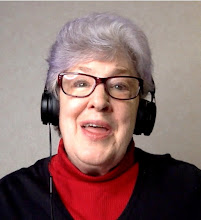In 2 of my English conversation classes, I'm using a textbook called
Impact Topics. This week, class discussion stemmed from one of the most popular chapters, entitled "I Can't Stop", which focuses on addictions.
In both classes, I made a couple of discoveries. One is that the students don't really understand the concept of addiction. A couple of them who have part-time jobs and work 5-6 days a week thought that they were workaholics. I explained that, unless they continued to work beyond the number of required hours and to do extra work without pay, they weren't really workaholics.
I gave the example of what happened the previous week when a couple of my TOEFL students asked me about the difference between "only" and "just." I ended up spending about 6 hours researching the two words on various Internet sites, coming up with several pages with numerous examples of usage. I'm still not satisfied that I can give a clear explanation and will most likely spend more time on it. Now that's a workaholic! (It's also the reason I haven't been doing my duty as one of the teachers at the
ESL Help Center at Dave's Cafe. I simply was spending too much time except on the simplest of answers.)
After my discussions with small groups and talking with the entire class about the nature of addiction, many of the students (if not all) had a much better understanding of the difference between liking something (such as watching movies, which many of them enjoy) and being addicted (watching movies for hours and hours, often until the wee hours of the morning, interfering with their studies and/or work).
I always start out the class by telling them how I'm a chocoholic, and explaining other "holic' terms such as shopaholic. At the end of the class, I ask them what addictions listed in the text they think I've checked besides chocoholic and workaholic. They can usually guess surfing the Net fairly quickly, but it takes a while for them to guess alcoholic. In fact, today there were numbers of different guesses, and one student finally came up with "drinking alcohol." When I said, "Yes," there was a cry of astonishment.
I told them how I used to drink a great deal, a bottle or two of wine, every night, which they found hard to believe. I also explained quickly that I was a recovering alcoholic, through the help of a support group, and that I hadn't had a drink for well over 8 years. I added that I could never drink again, even a single glass of wine.
Students fill out Self-Assessment Forms every week where they can give feedback on what they found interesting in their group discussion, and can ask me questions. I somewhat expected some comments on my self-disclosure about my alcoholism. To my astonishment, not a single student in either class mentioned it. Most of them focused on their own possible addictions or those of others in their group. Some felt they might be addicted to something (a common addiction was use of cell phones) and others came to the conclusion that they weren't. My openness about my own addictions seemed to give them more permission to talk about their own concerns.
Although I always talk briefly of ways of getting help with one's addictions - everything from hot lines to professional counseling to (peer) support groups - very little of their discussion seems to get into those areas. Last year, however, two of the students who smoked decided to start their own quit smoking support group of two. For others, if they need to seek help some day, at least they've been introduced to the concept of support groups.






